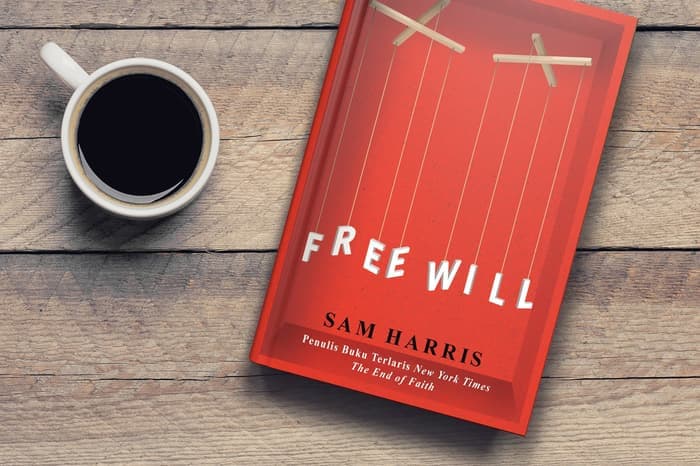Free Will by Sam Harris - Book Recommendation

This is actually my first book recommendation on this platform and it is about the last book I read: Free Will by Sam Harris. It is a quite short book, according to Amazon, 96 pages, I did not know because I read on my Kindle, but it is a book that you can read in one sitting.
I’m going to introduce you to Sam Harris, but in the future, I’ll write a proper article about him because he certainly deserves it. Sam is an American neuroscientist, podcast host, philosopher and app developer, he has written several books about religion, morality, spirituality, and meditation. On his podcast “Making Sense” he covers a wide range of topics usually through an interview with an expert.
This book is a philosophy book about the “illusion of free will”, something he had previously discussed on The End of Faith and The Moral Landscape, but here he develops his point of view, provides with examples and extends his arguments. Free will is something that it is at the core of society, morality and law, our daily lives are based on the assumption that people are free and that we are responsible for every action we take. According to Sam, this is an illusion since all our actions are based on genetic material and previous life experiences, so we are not actually free, we cannot choose what to think, thoughts just appear and our consciousness is just the witness.
He explains it in much more detail on the book and I’ll not do it justice, but for example, if I ask you to think about a movie, any movie you want… Why did you bring up that movie specifically? You could come out with a rationalization, but could you have chosen a different one? No, you could not, you have no ability to change the one that came to your mind, you could choose to think about a new one, but you did not choose that one neither… In Sam’s words, thoughts and intentions: “emerge from background causes of which we are unaware and over which we exert no conscious control”.
When this idea is applied to criminals, it is a sensitive topic because horrible actions are still horrible actions even if the person was not totally responsible for them, but as Sam writes, “if I had his genes and life experience and an identical brain in an identical state I would have acted exactly as he did”. People have no control over their genes, upbringing and most life experiences, and those are the things that shapes us, so how could we be totally responsible for our actions? In spite of this, the law should try to protect the general public from these individuals even though their actions are not completely their fault.
Some may argue that this view of people is detrimental to our society, but as Sam puts it, and I agree, losing this sense of freedom helps him to be more compassionate, forgiving and makes him more humble because when you internalised the idea that you are not the sole agent for your own success you can be more grateful to the people around you and the mere “luck” of you having the genetic material and the opportunities that you had.
If you have time and are interested in this kind of moral and philosophical topics I highly recommend for you to give this book a try. I hope you enjoy it as much as I did.